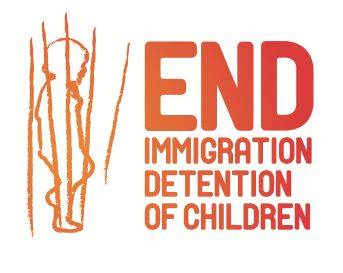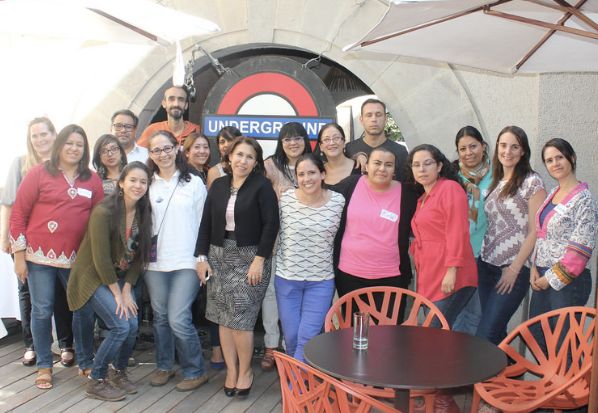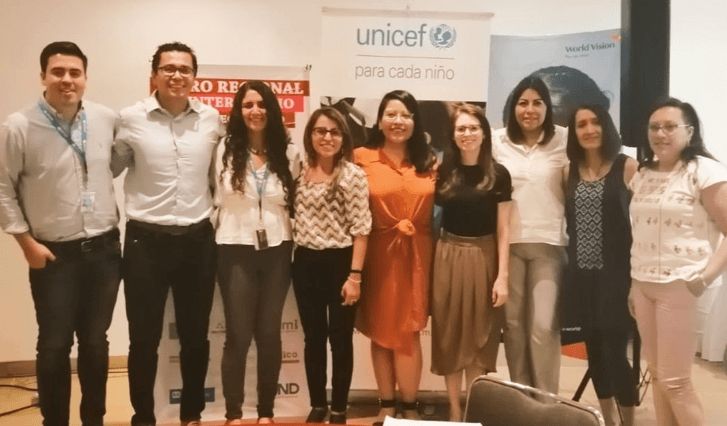Last Thursday 29 September, all 389 members of the Mexican Congress unanimously declared that immigration detention is no place for children. This historic political moment came to fruition following more than a decade of multi-level advocacy, and collaboration between civil society organisations, international partners, government authorities, and communities.
Mexico has long struggled with the moral contradiction of detaining tens of thousands of migrant and refugee children – mostly from Central America – while simultaneously taking a leading role in regional and international negotiations to end immigration of children and mandate non custodial community-based alternatives. In 2018, the Mexican government led the drafting and lobbying of these breakthrough commitments under the Global Compact for Migration and subsequently established the Working Group on Alternatives to Detention for Children under the Migration Policy Unit of its Interior Ministry.
Representative Nayeli Arlen Fernández Cruz: “Harmonization of the Migration and Refugee Laws pertaining to migrant children with the provisions of the General Law on the Rights of Children, is fundamental to guarantee that no minor child is detained arbitrarily in any of our country’s immigration detention centers…In this way, we respond to the international recommendations on the deprivation of liberty of children for migration reasons, on the understanding that determinations on the best interests of the child will be entrusted to an authority other than the migration authority.”
The first important shift came in 2014, on the heels of a pioneering collaboration in joint advocacy by migrant and child rights groups in Mexico. This collaborative work involved key partnerships with UNICEF and UNHCR, IDC´s Global Campaign to End the Immigration Detention of Children, hearings before the Inter-American Commission on Human Rights, as well as clear recommendations to Mexico from the IACHR and the United Nations Committee on the Rights of the Child. New legislation in 2014 established a national protection system for all children, regardless of their immigration situation, along with regulations that specifically prohibited their confinement in immigration detention centers.

The 2014 legislation opened up opportunities for collaboration with immigration authorities in the successful first alternative to detention pilot, and follow-up programs that demonstrated how children and families can be supported to live in the community as they participate in their ongoing migration or asylum process.
As reform to the immigration law lagged in keeping up with these important policy changes, critical obstacles remained to guaranteeing the right to freedom for migrant and refugee children in Mexico. In 2018, IDC members outlined opportunities for Mexico’s new administration to strengthen alternatives that would limit the use of immigration detention. This included investing in joint programs between authorities and civil society that would uphold migrants’ rights while also meeting state requirements. Meanwhile, instances of immigration detention of children soared exponentially over the past three years, and even under 2020 pandemic conditions, over 90% continue to be deported to their countries of origin, without proper screening or adequate assessment of their best interests.
Throughout this time, IDC and our members Asylum Access Mexico, Instituto de las Mujeres en la Migración, and many others, actively engaged in the Migration Policy Working Group (Grupo de Trabajo sobre Política Migratoria), to lobby and train legislators on the urgent and important nature of the law reform proposals before the Mexican Congress. Last week´s unanimous decision is a testament to the strength of those who believe that Mexico can indeed close the gap between discourse and reality, and safeguard the lives of thousands of migrant and refugee children fleeing Central America in search of peace and security.
Gisele Bonnici, Americas Regional Coordinator, IDC: “Working side by side with our dedicated partners in Mexico, IDC will continue to promote and support practical implementation of effective and appropriate alternatives for migrant and refugee children. Our goal is that no child, whether travelling accompanied or unaccompanied, be detained for any period of time for immigration reasons.”

Mexico’s new legislative commitment to end the immigration detention of children will demand effective, resourced, and just implementation across the country. It will mean that national immigration authorities no longer are charged with responsibility for decisions regarding migrant children; this will now rest exclusively with national child protection authorities, who are best placed to ensure their welfare in accordance with their best interests.
In this respect, IDC commends the positive progress embodied in the adoption of the National Protocol for the Protection of Migrant Children and the important efforts to strengthen coordination and implementation at state and local levels. These actions constitute solid policy foundations upon which to build a national referral system for migrant and refugee children in Mexico that includes screening, assessment, and placement in alternative care models with appropriate case management processes. IDC currently holds a seat on the national Commission for the Protection of Migrant Children and provides technical guidance for state level implementation of the Protocol to the states of Baja California, Coahuila, Sonora, San Luis Potosi, Zacatecas, Jalisco, Tlaxcala, Chiapas, and others. With little resources, IDC and partners have been able to support the development of ground-level structures to protect migrant children, such as alternative care models, and create processes for authorities to share methodology, strategy and learnings.
IDC is a global organisation with a localised worldview, and we look forward to continuing our work with local partners, including Mexican authorities, UNICEF, UNHCR, IOM and other agencies, to ensure the budget and structures are in place to fulfil this new and critical legislative mandate.
